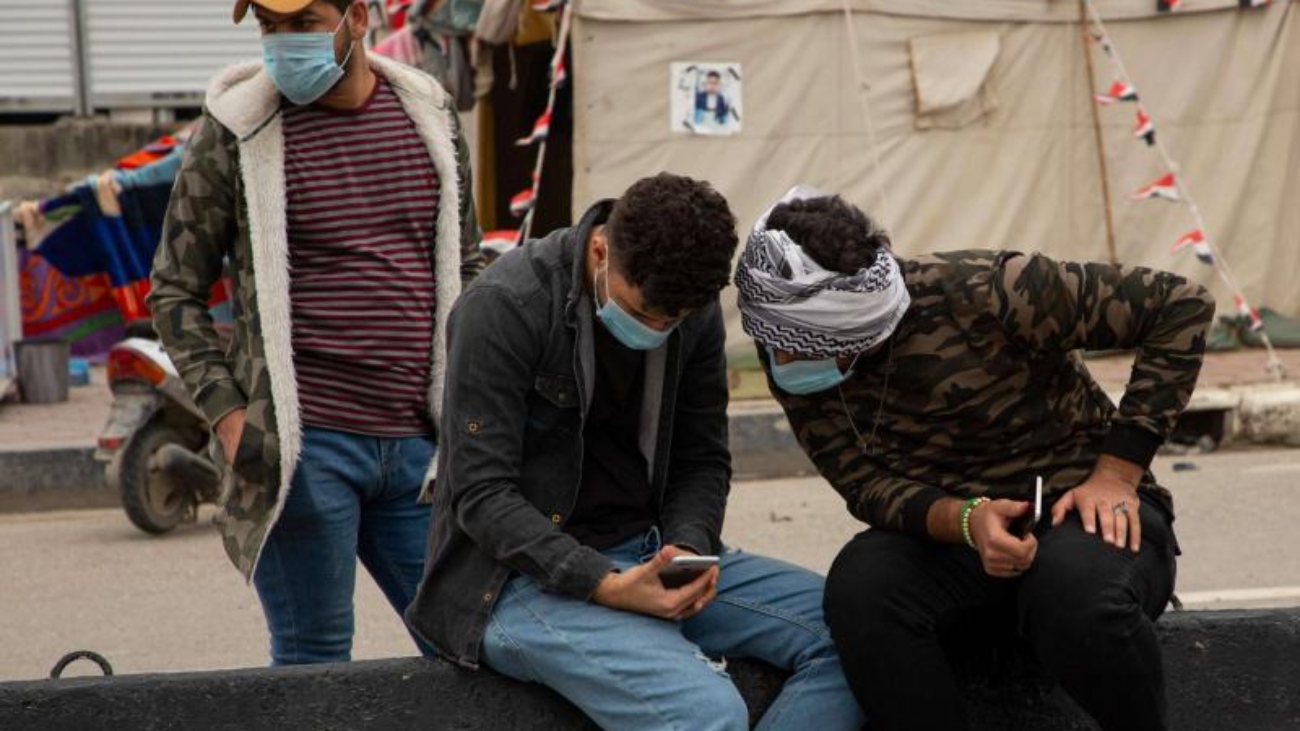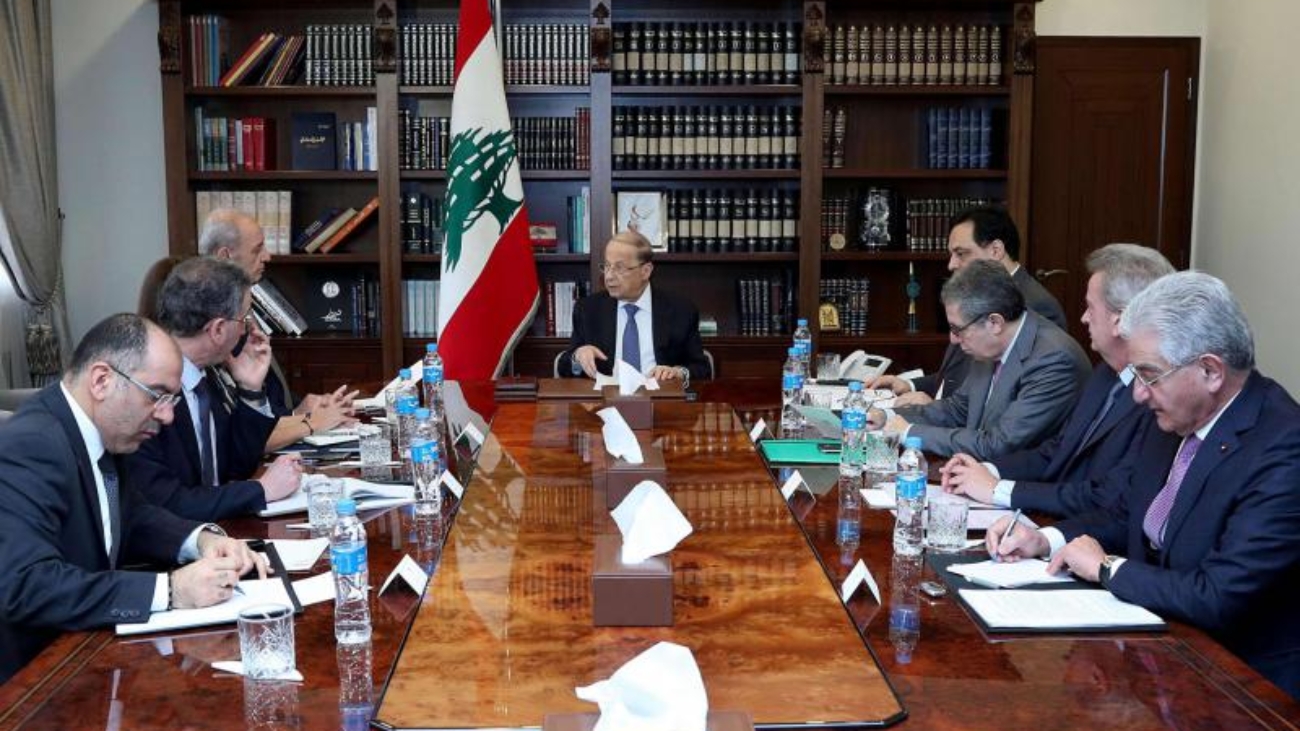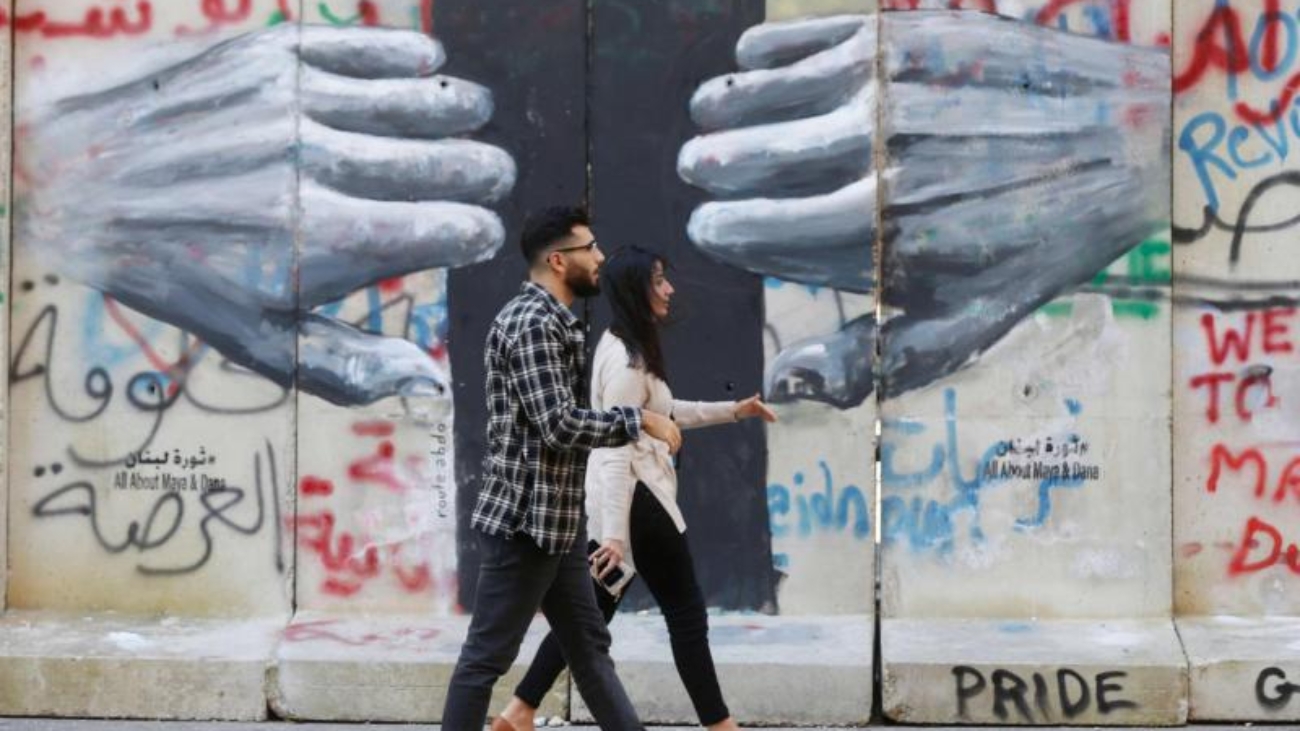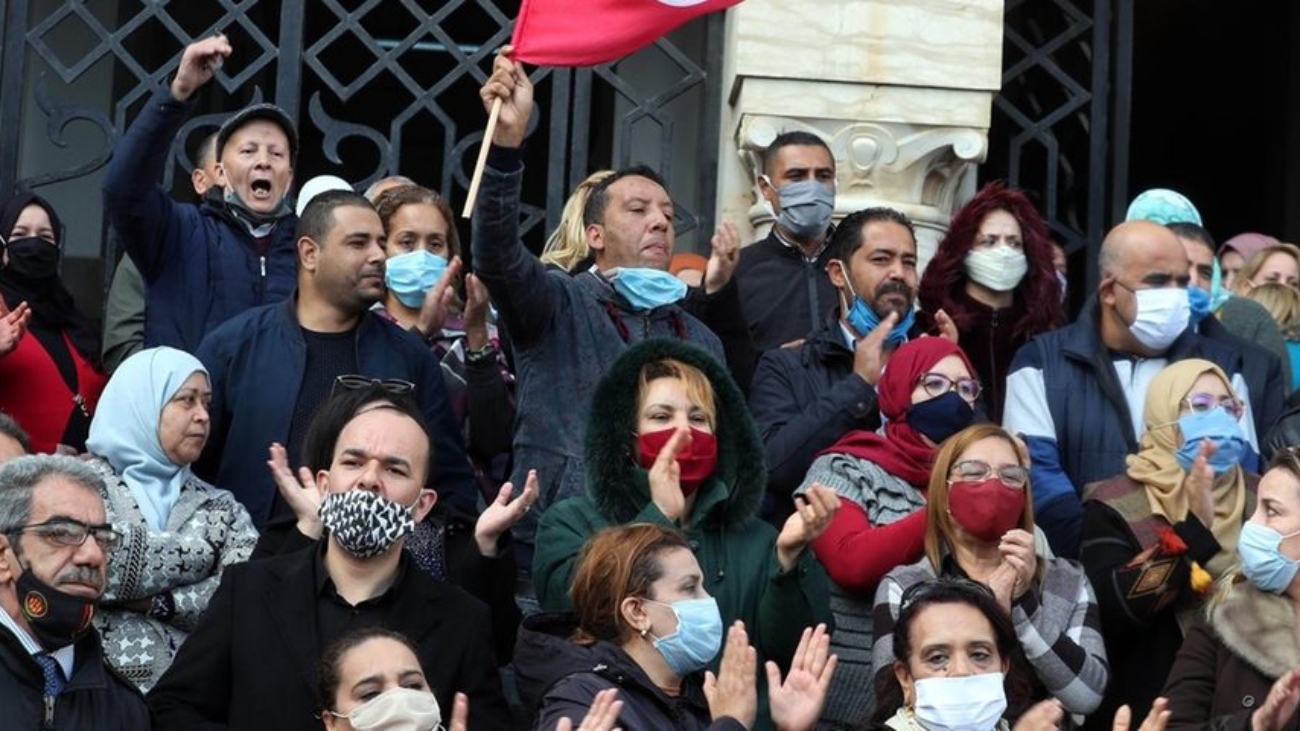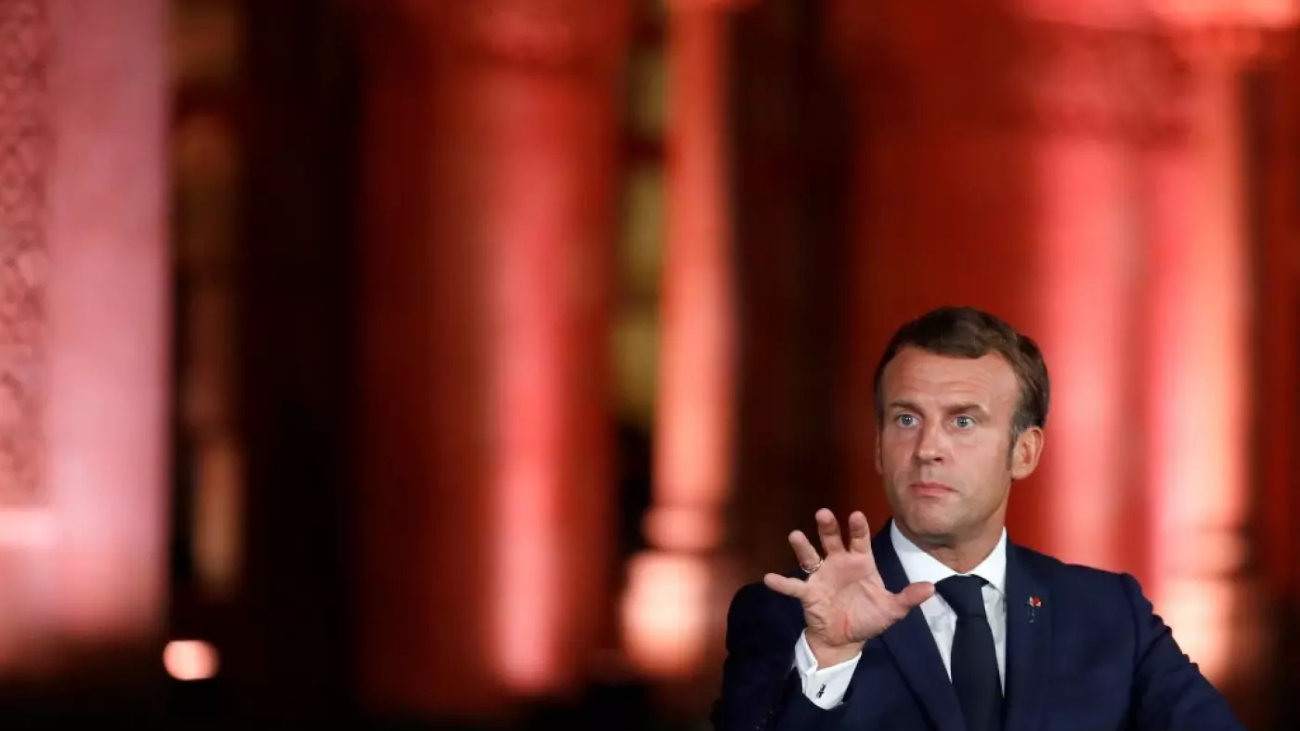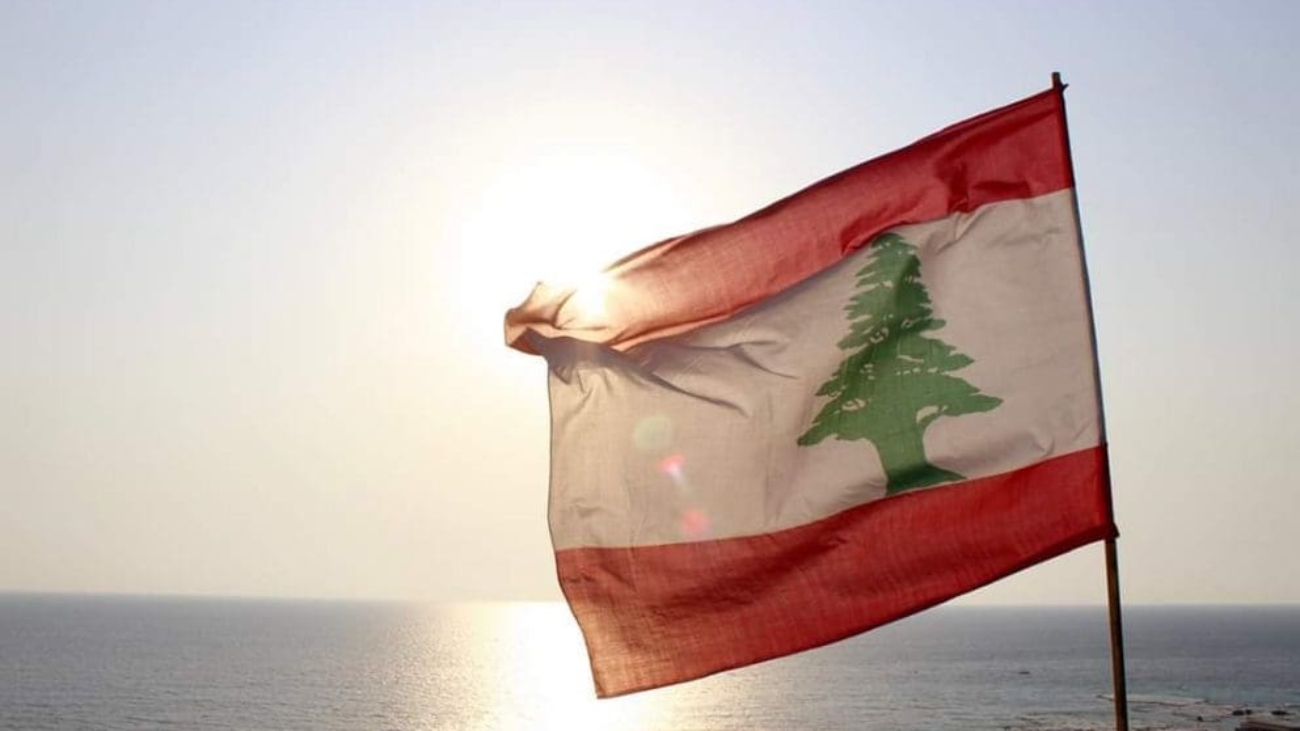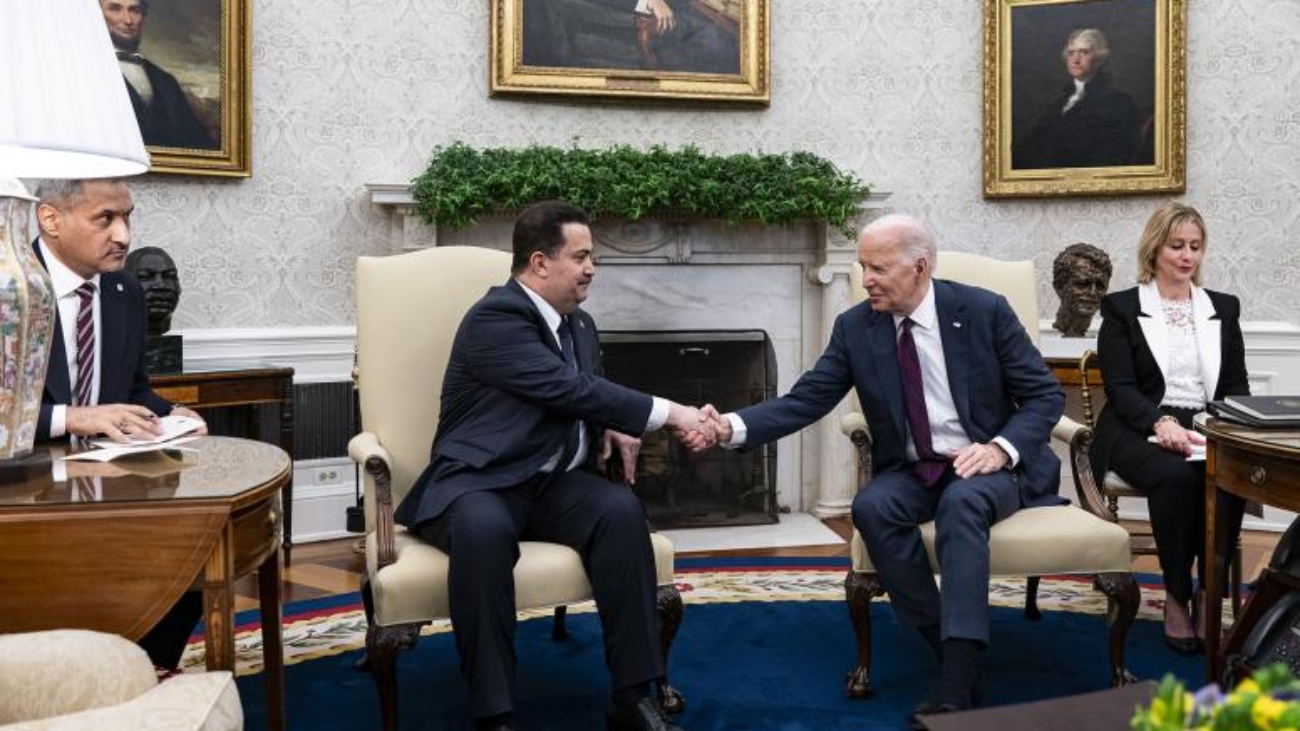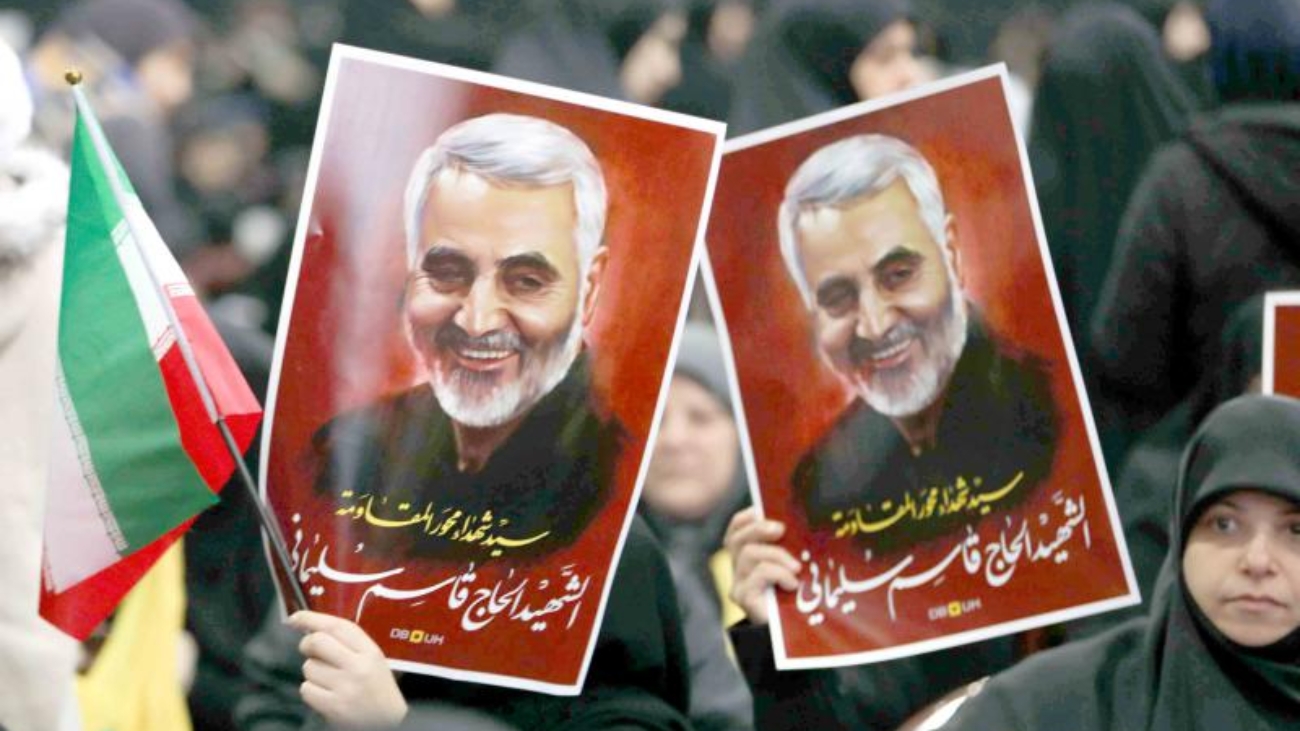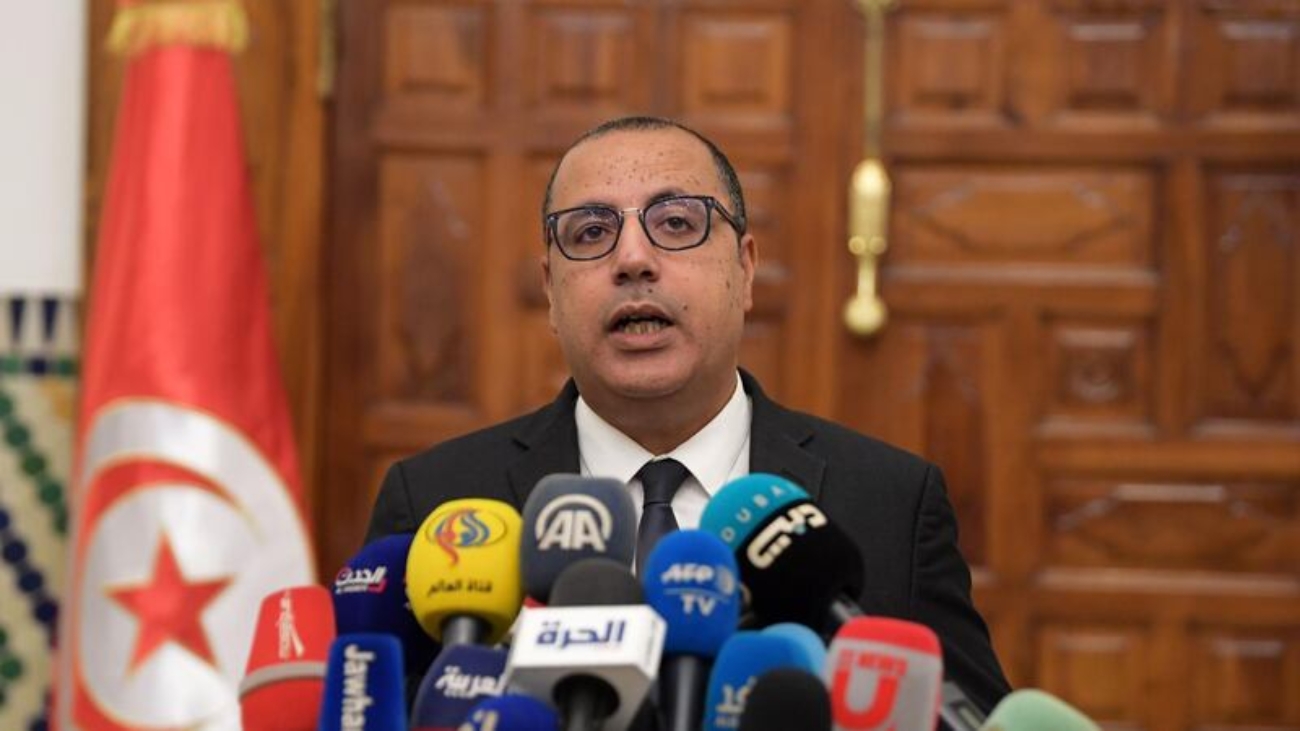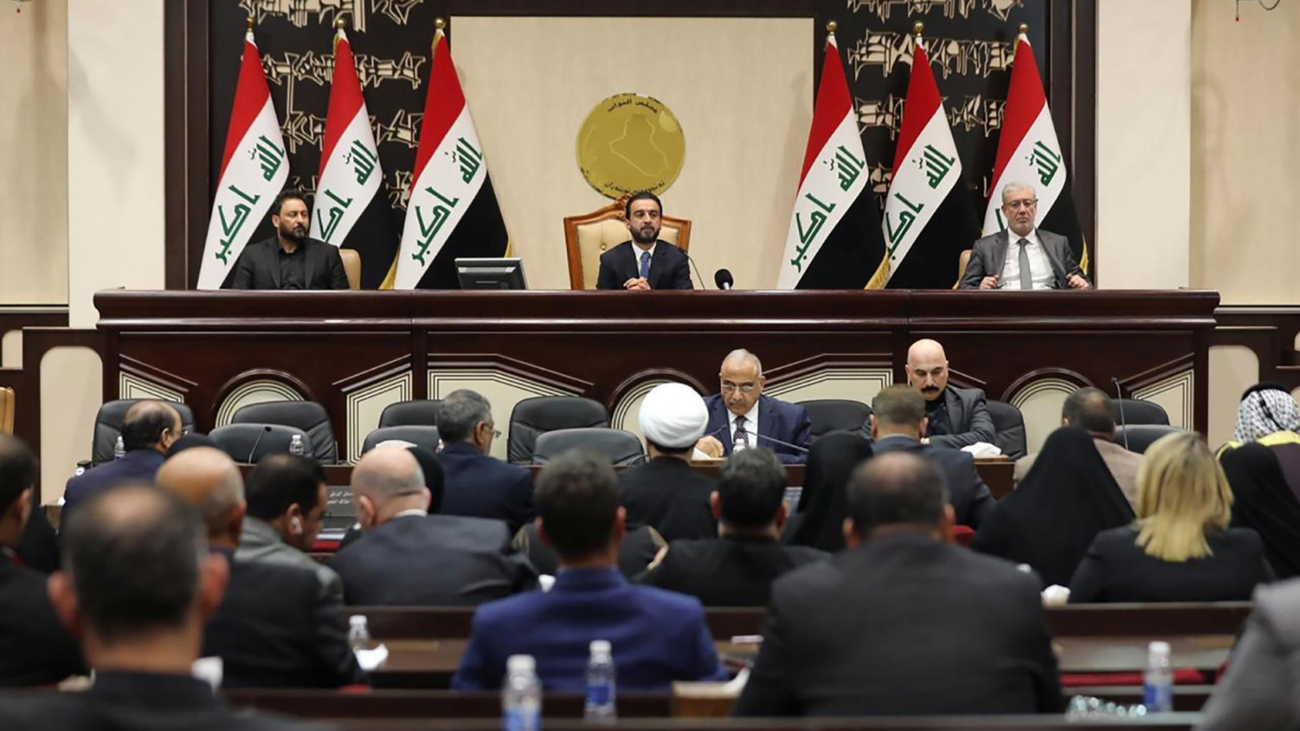Emmanuel Macron s’est rendu au chevet du Liban, le jour de la célébration de son centenaire. Il a presque imposé à la classe politique un plan de sauvetage du pays. Mais son ambition de réformer le système politique libanais sera plus difficile à concrétiser
This piece was originally published on the middleeasteye website https://www.middleeasteye.net/
« En 1920, la France était à l’origine de la création du Grand Liban. Un siècle plus tard, elle est là pour l’empêcher de disparaître. Qui a dit que l’histoire ne se répétait pas ? » Il y a quelques jours encore, Amine Saadé, menuisier de profession, ne rêvait que d’obtenir un visa pour quitter le Liban. Aujourd’hui, après la visite du président français, l’avenir lui semble moins sombre.
Emmanuel Macron a réussi à insuffler un peu d’espoir chez une partie des Libanais. Pour la deuxième fois en moins d’un mois, le chef de l’État français a effectué une visite de 24 heures au Liban, riche en symbole et en messages politiques.
Il a débarqué dans un pays à la dérive, le 1er septembre, jour de la célébration du centenaire du Grand Liban, porteur d’un plan de sauvetage qu’il a presque imposé à la classe politique, accusée par une partie de la population d’être responsable des crises en série qui frappent le pays depuis l’automne dernier : désastre économique et financier, blocages politiques et crise sanitaire avec la propagation du coronavirus, le tout couronné par la double explosion cataclysmique du 4 août, qui a fait 190 morts, 6 500 blessés et détruit le port de Beyrouth et une partie de la ville.
Lors de sa première visite, le 6 août, le président français avait presque sommé les dirigeants politiques d’agir au plus vite pour freiner l’effondrement du pays et d’entamer un processus de redressement. Ses conseils fermes, prodigués publiquement, et les fortes pressions, exercées plus discrètement, ont donné des résultats, semble-t-il.
Après avoir perdu du temps dans de stériles conciliabules, les principales forces politiques se sont en effet entendues sur le nom d’un nouveau Premier ministre pour succéder à Hassan Diab, démissionnaire depuis le 10 août sous la pression de la rue, de l’opposition et après avoir été lâché par ses alliés.
Les bonnes relations de Moustapha Adib avec la France
Moustapha Adib a été nommé le 31 août, à la veille de l’arrivée de Macron, lors de consultations parlementaires convoquées par le président Michel Aoun. Cet homme de 49 ans, inconnu du grand public, a été convoqué en urgence de Berlin, où il occupait depuis 2013 le poste d’ambassadeur du Liban en Allemagne.
Avant sa carrière de diplomate, il était professeur de sciences politiques à l’Université libanaise (publique) et conférencier à l’Académie militaire de l’armée. Entre 2011 et 2013, il a occupé le poste de directeur du cabinet du Premier ministre de l’époque, le milliardaire Najib Mikati, originaire comme lui de Tripoli.
« Les Français connaissent bien [le nouveau Premier ministre Moustapha Adib] et le considèrent comme un ‘’membre de la famille’’. Son beau-père est proche de l’Élysée et tous les étés, il passe ses vacances en France avec son épouse et ses cinq enfants »
– Salim al-Asmar, journaliste
Moustapha Adib a été choisi par le « rassemblement des anciens Premiers ministres » (regroupant Saad Hariri, Fouad Siniora, Najib Mikati et Tammam Salam) et son nom a été accepté par le président de la République Michel Aoun et les partis chiites (Hezbollah et Amal). La nature consensuelle du choix correspond à cet homme grand et élégant, qualifié de « personnalité modérée » et « ouverte au dialogue » par un de ses proches à Beyrouth.
Mais ce ne sont pas les seuls atouts dont il disposerait. Le Premier ministre détient le passeport tricolore de par son épouse française et entretient de bons rapports avec Paris.
« Les Français le connaissent bien et le considèrent comme un ‘’membre de la famille’’ », écrit Salim al-Asmar dans le site 180post. « Son beau-père est proche de l’Élysée et tous les étés, il passe ses vacances en France avec son épouse et ses cinq enfants. »
Emmanuel Macron a dit, à Beyrouth, ne pas connaître le nouveau Premier ministre mais une source politique libanaise croit savoir qu’« il a été proposé par Bernard Emié, le chef de la Direction générale de la sécurité extérieure (DGSE) [française] ».
Les deux visites du président français et le choix de Moustapha Adib illustrent un fort engagement de la France au pays du Cèdre.
« Il est clair que le Liban ne peut pas se relever seul à cause d’une variété de facteurs : manque de maturité politique, manque de ressources, blocages politiques, intérêts régionaux », explique à Middle East Eye Elie Abouaoun, directeur du Moyen-Orient et de l’Afrique du Nord à l’Institut des États-Unis pour la paix.
« C’est justement à ce niveau que le président Macron a essayé de briser l’étau. »
Macron menace les dirigeants libanais de sanctions
Lors de ses rencontres avec les principaux dirigeants et les chefs des grands partis mardi, Emmanuel Macron leur a arraché l’engagement de faciliter la formation du prochain gouvernement « dans un délai de quinze jours ». Ce processus traînait depuis des mois en raison des appétits insatiables et des intérêts divergents des partis politiques.
D’ici à trois mois, le « gouvernement de mission », comme l’a appelé le président français, devra mettre en œuvre « la réforme des marchés publics, de la justice, de la lutte contre la corruption, la réforme de l’énergie et de l’électricité, la réforme du port, une meilleure gestion de la Banque centrale et du système bancaire ».
Il a par ailleurs proposé d’organiser à Paris une conférence d’aide au Liban dans la première quinzaine d’octobre, estimant que les trois mois à venir seraient « cruciaux » pour qu’un véritable changement s’opère au Liban.
Si les dirigeants libanais ne respectaient pas leurs engagements, Emmanuel Macron s’est montré presque menaçant, se disant prêt à changer d’approche et à soutenir des mesures punitives allant d’un gel du plan international d’assistance financière au Liban à des sanctions contre la classe dirigeante.
Des positions conciliantes à l’égard du Hezbollah
Les efforts engagés par la France pour éviter l’effondrement du Liban vont à contre-courant de la politique déployée par les États-Unis depuis 2017. Celle-ci consiste à étouffer le pays en empêchant l’aide internationale et en imposant des sanctions contre le Hezbollah, lesquelles ont contribué à faire fuir les capitaux et mis à genoux le secteur bancaire.
« La France dispose d’un nombre d’atouts comme la relation séculaire avec les groupes constituants du Liban, un feu vert conditionnel américain, une panoplie de relations au niveau régional, une influence sur certains organismes européens et onusiens », énumère Elie Abouaoun.
« Cependant, l’action française doit surmonter un certain nombre d’obstacles. Contrairement à ce qui peut être perçu, l’influence de la France sur les acteurs régionaux actifs au Liban n’est pas assez forte pour les amener à composer avec les impératifs d’une solution aux problèmes du Liban », nuance-t-il.
« La France a compris que si elle veut jouer un rôle au Liban, l’interlocuteur politique le plus fort, c’est le Hezbollah »
– Walid Charara, éditorialiste et auteur
Toutefois, la France semble avoir surmonté ces obstacles, du moins à ce stade. Lors d’une conférence de presse clôturant sa visite mardi soir, Emmanuel Macron a parlé aux cinq membres du Groupe international de soutien au Liban, qui comprend notamment les États-Unis, et aux acteurs régionaux, citant le président iranien Hassan Rohani et le prince héritier saoudien Mohammed ben Salmane.
« La politique américaine prônée par l’aile dure de l’administration américaine visait à couler le pays pour couler le Hezbollah, en étendant au Liban la politique de pression maximale en vigueur contre la Syrie », déclare à MEE Walid Charara, éditorialiste au quotidien Al-Akhbar et co-auteur du Hezbollah, un mouvement islamo-nationaliste.
« Après la double explosion au port, Emmanuel Macron s’est saisi de l’opportunité pour dire à Donald Trump que cette politique allait étouffer le Liban sans tuer le Hezbollah car il est le seul parti à avoir une résilience forte. Les Américains ont donné un feu vert aux Français pour tenter une nouvelle approche. »
Les positions conciliantes affichées par le président français à l’égard du Hezbollah confirment cette analyse. « Le Hezbollah est un parti libanais qui possède des députés élus par le peuple. Il a une clientèle », a-t-il fait remarquer.
Mohammad Raad, le chef du bloc parlementaire du parti chiite, ennemi juré d’Israël et des États-Unis, était invité mardi à une rencontre avec le président français, au même titre que les dirigeants de huit autres grands partis politiques. Déjà, lors de son premier voyage le 6 août, Emmanuel Macron avait eu un tête-à-tête avec ce député à la résidence de l’ambassadeur de France.
Cette approche pragmatique serait due au fait que « la France a compris que si elle veut jouer un rôle au Liban, l’interlocuteur politique le plus fort, c’est le Hezbollah », ajoute Walid Charara.
« Si Paris veut lui imposer des concessions s’agissant des armes [le Hezbollah est le seul à les avoir conservées après la guerre civile] ou d’Israël, c’est perdu d’avance ; ce que les Israéliens et les États-Unis n’ont pas obtenu par la force et les pressions, ils ne l’obtiendront pas avec la diplomatie française », relativise-t-il.
Cette posture dépourvue d’hostilité de Macron à l’égard du Hezbollah a fait des mécontents parmi ceux qui avaient durci leur discours contre le parti chiite au lendemain de l’explosion du 4 août, espérant instrumentaliser cette catastrophe pour affaiblir le « Parti de Dieu ».
Le député démissionnaire des Kataëb (droite chrétienne) Nadim Gemayel s’est notamment adressé au président français sur Twitter, lui demandant en « toute franchise » s’il considérait « les armes de ce parti comme légales et légitimes ».
Un démantèlement du système confessionnel en vue ?
Le chef de l’État français a annoncé un troisième voyage au Liban, en décembre, pour s’assurer que les réformes ont bien été mises sur les rails. Passé ce cap, il envisage de s’attaquer à des questions plus délicates, comme les armes du Hezbollah, voire un « nouveau pacte politique », comme il l’avait dit lors de sa première visite.
Sur ce plan, le président libanais Michel Aoun avait exprimé son souhait, dimanche 30 août, de transformer le Liban en « État civil », ce qui implique le démantèlement du système du « confessionnalisme politique », basé sur un partage entre chrétiens et musulmans des postes politiques et administratifs.
Le secrétaire général du Hezbollah avait appelé de ses vœux, quelques heures plus tôt, à un « nouveau contrat politique ». Le président du Parlement Nabih Berry, principale personnalité chiite de l’État, lui avait emboîté le pas le lendemain.
« Le chef du Hezbollah avait déjà défendu l’idée d’une constituante, une sorte d’assise nationale pour discuter du renouveau du système politique avec la participation de l’ensemble des composantes libanaises », rappelle d’ailleurs Walid Charara.
Elie Abouaoun souligne pour sa part la difficulté d’un changement de système. « Encourager la reconstitution des pouvoirs législatif et exécutif sur des bases saines et équitables signifie une confrontation avec la plupart des forces politiques », fait-il observer.
Selon lui, « la France pourra trouver une formule qui engendrera un changement de la pratique politique au Liban ainsi que du niveau de transparence dans la gestion de la chose publique sans toutefois saper les fondements de la stabilité ».
À défaut d’encourager l’émergence d’un nouveau système politique, la France œuvrerait, à court terme, à replâtrer l’ancien, en améliorant les standards de gouvernance, qui sont tombés très bas ces dernières années.
« Il faut espérer que les efforts de Macron ne seront pas court-circuités par David Schencker », le secrétaire d’État adjoint américain, attendu cette semaine à Beyrouth, fait remarquer à MEE une source politique.

